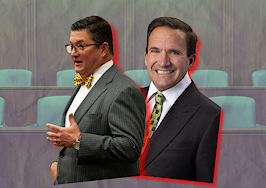When it comes to the topic of teams within our industry, there are about as many different opinions as there are real estate professionals. There are oft-discussed pros and cons of joining a team, and agents can contemplate this decision multiple times over the course of their careers.
While some have said that teams are the future of our industry, a crucial factor that is often overlooked in these discussions is how we’re defining a team and the purpose they serve for the real estate professionals who elect to join them. After all, 100 percent of real estate business is transacted by agents at a brokerage, and a brokerage should also be functioning as a team.
Here are some considerations for brokers in approaching teams within their business.
What’s the ‘why’?
Some brokerages have a “no team” policy, while some have certain parameters in place for teams, and others take more of an “anything goes” approach. None of these is inherently better than the others, as long as both brokers and agents understand the “why,” or in other words, the reason for establishing a team and goals for what they’d like to accomplish.
It is the purpose and structure of a team that will determine its impact on the business at large.
For example, brokers leading a team for mentorship opportunities can foster professional development, referrals and overall collective success, while an agent-led team can sometimes create a competing business within a business. If agents feel they need to operate as a team because they need more support or resources, this can be an indication that perhaps leadership should be providing more value at the brokerage level.
Ultimately, when considering the birth of a team, there are only two reasons to begin that journey. First, this potential team leader has a true desire to mentor. Second, they simply have too much business, to a point at which their ability to provide a high level of service to the customer is sliding. Anything beyond either of these reasons is insufficient.
Case in point, many teams get started because of perceived monetary gains or an individual’s desire to build their own brand. The brokerage should be a benefit to the individual’s brand, and if they do start a team, all members should leverage the brokerage in the same way. This is the only way all three parties can work together for long-term loyalty.
Redefining ‘team’
Real estate professionals join teams for a number of reasons, with greater reach, economies of scale, accountability, training, support and collaboration to name a few. However, if agents believe they can perform more strongly as part of a team than as an individual, there’s no reason brokers cannot foster these same benefits.
As a broker, you, your staff and your brand should all be part of an agent’s “team” and vice versa. This means building and continually reinforcing a strong culture of collaboration, information sharing, teaching, and collective success, and creating efficiencies to help people sell more real estate. It is worth noting that there is a difference between a support team and a true-performing team.
Support teams can indicate that an agent is running a business as a business. Performing teams, on the other hand, are more about agents acting as a brokerage within a brokerage.
Brokers should also be leveraging their brands to the max, and helping their agents to do the same. As business leaders, if brokers are going to invest in partnering or affiliating with a larger real estate brand, they should be using every possible tool and resource at their disposal. This should yield the same benefits as a team, but on a much larger scale.
Factors like reach, brand recognition, and sphere of influence are all amplified when a brokerage is part of an organization where a “team” mentality is applied at a brand level and trickles down to every individual agent.
Often, strong support from the corporate level can eliminate the need for the independent operating structure of a team. As another example, take the high-performing agent who doesn’t have the time or resources to do anything other than sell. In being part of a larger brand that provides marketing materials, technology, training, and all-around agent support, the agent can focus on doing what they do best: building relationships and selling.
Within a team, power rests with the team leader. As a broker, is that you? Overall, teams can be very positive for business. Problems arise when teams operate as a brokerage within a brokerage, which for a broker/owner means ceding a large portion of control of your business to someone else.
However, understanding the goal of teams, the role they do or do not play in your business and implementing a strong company culture can help to put the structure in place to help both agents and brokers be successful. At the end of the day, if you’re supporting agents and helping them grow professionally and achieve their goals, the question of teams becomes less relevant.
Anthony Hitt is the CEO of Engel & Völkers Americas in New York City. Follow him on Twitter or Instagram.













